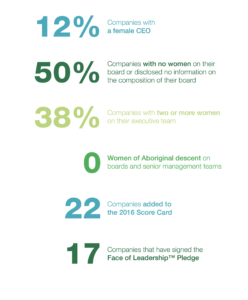
Female leaders say unconscious workplace bias is still a problem
Business women unite for 'The Threat of the Uppity Woman' lecture
Reported by Jennifer Wilson
An unconscious bias in work culture continues to hold back women’s careers, according to female business leaders and a lecture held at the Kerrisdale Community Centre last week, The Threat of the Uppity Woman.
The lecture, presented by Reema Faris, a PhD Student in SFU’s Department of Gender, Sexuality & Women’s Studies aimed to address and challenge workplace bias against women who exhibit ambition and leadership. Last year, The Minerva Foundation for BC Women released a report saying that only 12 per cent of B.C. businesses had a female CEO, while 50 per cent had no women on their board.
Julia Chung, CEO of Admin Slayer Services in Vancouver said that in major businesses, women have been made to feel they have very few options to succeed.
“People think you’re either gonna be a bossy, bitchy woman or you’re going to sleep your way to the top,” Chung said. “The nice girls don’t get ahead because ‘this business is tough,’ that’s the general belief.”
Noticed in multiple fields
Holly Burton, a Vancouver-based career counselor, said that her female clients often face subtle forms of gender bias.

“It’s not that someone has come out and said you’re too ambitious or you’re too uppity in the moment, but that [my clients] have watched it unfold implicitly throughout their lives,” Burton said.
Kristin Vandergriend, founder of counselling service, Career Story, said she remembered many times throughout her own career when she didn’t speak up for herself.
“Hands down women have a harder time owning their strengths, and that impacts your ability to further your career,” Vandergriend said.
Burton said women are often criticized more harshly for their management of interpersonal relationships which can affect their willingness to put themselves forward.
“It’s a pretty natural reaction to what is more common for women, getting called out more aggressively if they are out of line. People are actively trying to hide their ambition for fear what will happen,” she said.
Growing support, growing change
However, negative stereotypes are slowly changing as women learn to openly support each other. According to Faris, raising awareness to unfair biases in the workplace is important but change comes from action, not theorization.
“So, speak up, speak out, challenge, question, and work together,” Faris said. “Find common cause and make progressive change because that is what will benefit everyone.”

Comments are closed.